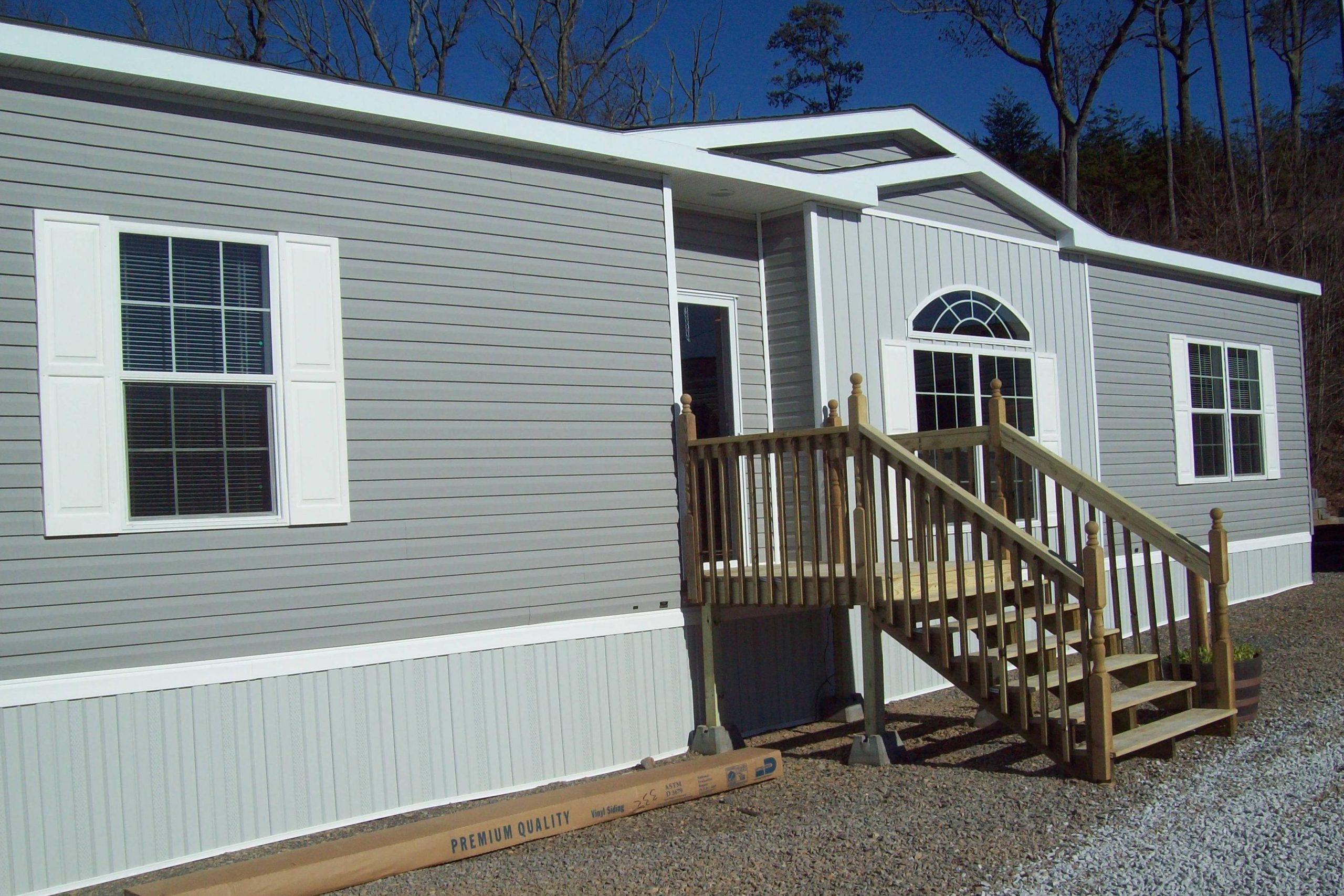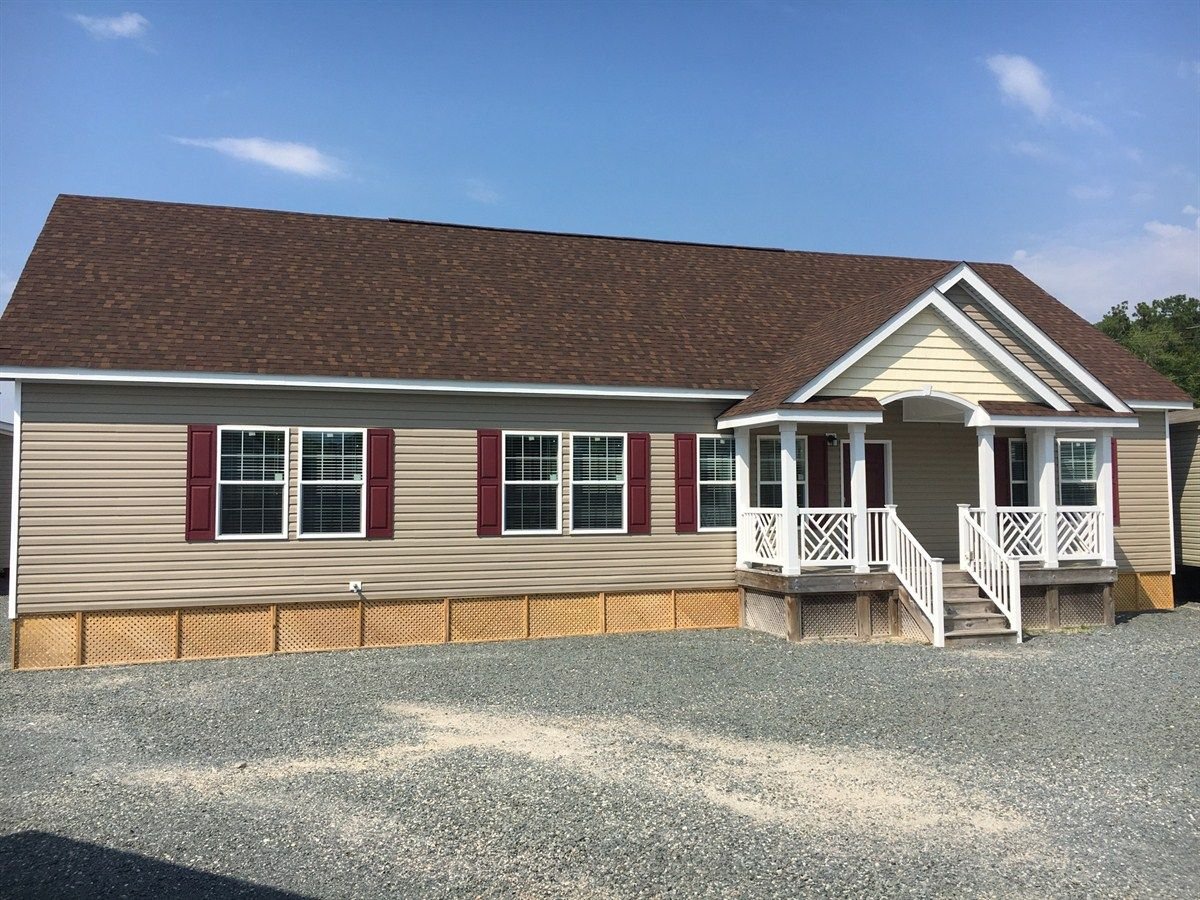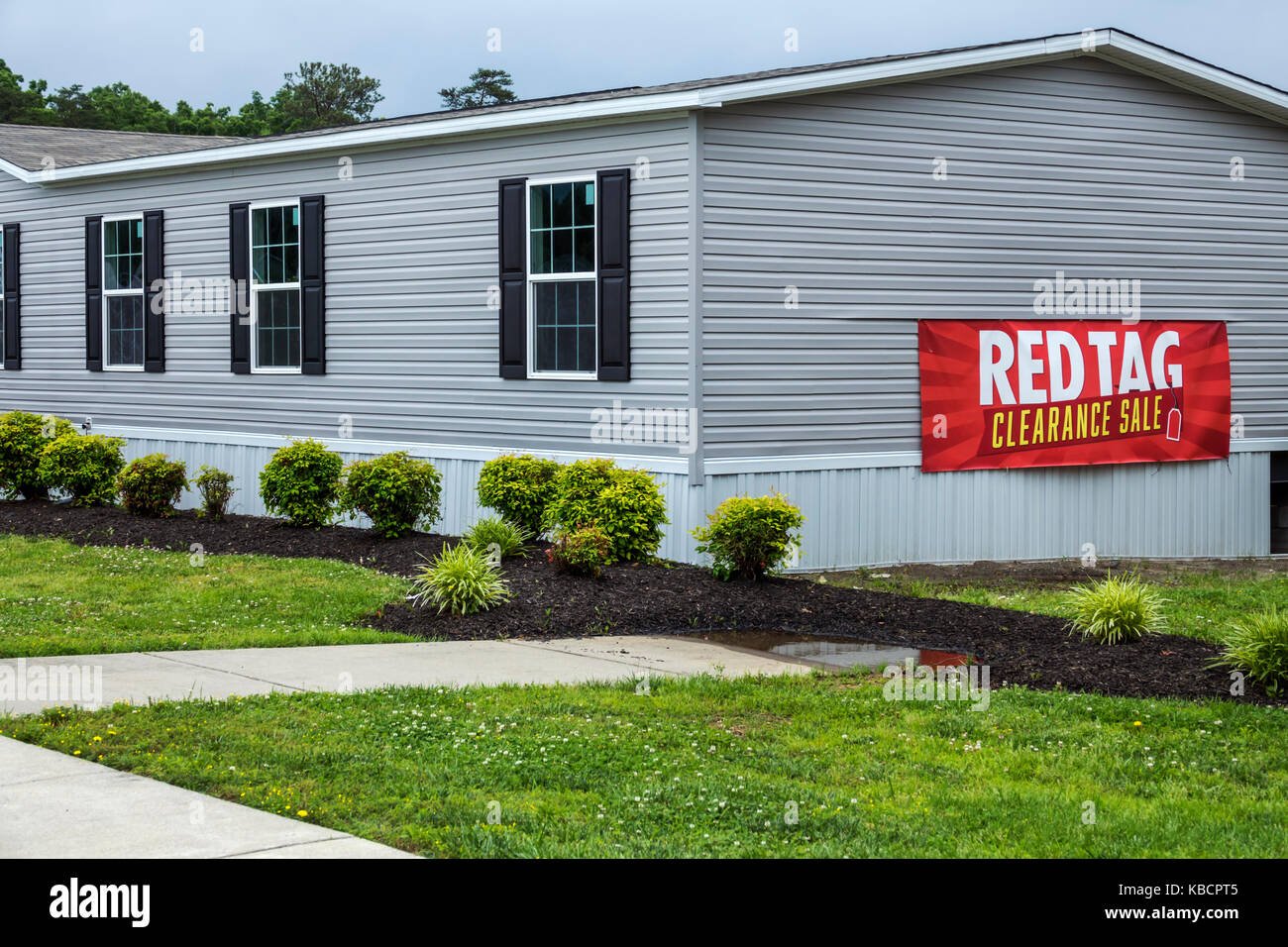If you’re wondering whether Clayton Homes are modular or manufactured, you’ve come to the right place. In this comprehensive guide, we’ll delve into the distinctions between these two types of homes and explain which category Clayton Homes falls into. By the end of this article, you’ll have a clear understanding of the unique characteristics of modular and manufactured homes and how they compare to traditional site-built homes.
Key Takeaways:
- Clayton Homes offers both manufactured and modular homes.
- Customization options are available for both types of homes, ranging from flooring to bathtubs.
- Appliances are included in Clayton Homes, but homeowners are responsible for furnishing their homes.
Are Clayton Homes Modular or Manufactured?

Understanding the Differences
Clayton Homes, a leading manufacturer of factory-built homes, offers both modular and manufactured homes. While similar in many ways, these two types of homes have distinct differences in their construction processes.
Manufactured Homes
- Built entirely in a factory and transported in sections to the home site.
- Constructed to federal building codes (HUD Code) and must meet specific safety and durability standards.
- Typically less expensive than modular homes.
- Limited customization options compared to modular homes.
Modular Homes
- Built in sections in a factory but are larger than manufactured homes.
- Transported to the home site and assembled on a permanent foundation.
- Constructed to local building codes and offer more design flexibility.
- More expensive than manufactured homes but provide greater customization options.
Customization Options
Both manufactured and modular homes offer various customization options to suit individual preferences. These options include:
- Flooring
- Cabinetry
- Exterior finishes
- Kitchen islands
- Freestanding bathtubs
Home Furnishings
Clayton Homes includes appliances in the kitchen, bathroom, and other areas of the home. However, homeowners are responsible for furnishing the rest of the home with their own furniture and décor.
Choosing Between Modular and Manufactured Homes
The choice between a modular and manufactured home depends on individual needs and preferences. Consider the following factors:
- Budget: Modular homes are generally more expensive than manufactured homes.
- Customization: Modular homes offer greater customization options than manufactured homes.
- Location: Manufactured homes are built to federal codes, while modular homes must adhere to local building codes.
- Installation: Manufactured homes are typically installed more quickly than modular homes.
Have you ever considered the numerous advantages of homeopathic medicine? Discover the remarkable aloe 200 homeopathic medicine uses and explore the potential benefits it holds for your well-being.
Considering alternative options for home care? Explore our comprehensive guide on alternate home care solutions and discover various approaches to enhance your comfort and independence at home.
Wondering if your homeowner’s insurance covers the dock you so passionately built? Dive into our thorough analysis by clicking on are docks covered by homeowners insurance and clarify this crucial aspect of your coverage.
Identifying Key Differences Between the Two
When comparing Clayton Homes’ modular and manufactured homes, key differences emerge that impact your decision-making. Let’s dive in!
Construction Methods
Manufactured homes roll off the factory line in complete sections, ready to be transported to the building site and set on a prepared foundation. Think of it as assembling a large puzzle. They adhere to federal HUD code standards, ensuring quality and uniformity.
Modular homes, on the other hand, are built in sections in a factory, but these sections are larger than manufactured homes. They’re then transported to the construction site and assembled on a permanent foundation, following local building codes. This approach allows for more flexibility in design and customization.
Building Codes
Manufactured homes comply with the federal HUD Code, which governs their construction and safety standards. This national code ensures consistency and affordability.
Modular homes, however, follow state, county, and city building codes, similar to site-built homes. These codes vary by location, potentially influencing the design and construction requirements.
Size and Customization
Manufactured homes typically offer a limited range of sizes and floor plans debido to their standardized construction. Customization options are also more restricted.
Modular homes provide greater flexibility in size and layout. Since they’re assembled on-site, there’s more room for customization, allowing you to tailor the home to your specific needs and preferences.
Other Considerations
Both types of homes offer comparable durability to site-built homes. They also come with appliances and basic fixtures, leaving you responsible for additional furnishings.
Key Takeaways:
- Construction: Manufactured homes are built entirely in a factory, while modular homes are built in sections and assembled on-site.
- Codes: Manufactured homes follow HUD Code standards, modular homes adhere to local building codes.
- Customization: Modular homes offer more flexibility in size and layout compared to manufactured homes.
Sources:
- Clayton Homes – Difference Between Modular and Manufactured Homes
- SmallManufactured.Homes – Are Clayton Homes Modular or Manufactured?
Advantages and Disadvantages of Each Type

Let’s break down the key differences between modular and manufactured homes by Clayton Homes.
Construction
Modular homes are built in sections in a factory and then assembled on a permanent foundation on-site. Manufactured homes, on the other hand, are entirely built in a factory and then transported to the site in sections.
Building Codes
Manufactured homes adhere to federal HUD Code standards, while modular homes comply with state and local building codes, which may result in variations in regulations.
Customization
Modular homes offer more flexibility for customization, allowing you to tailor the design and layout to your needs. Manufactured homes, while less customizable, provide a range of basic features and some upgrade options to suit your preferences.
Size and Durability
Modular homes typically offer a wider range of sizes and layouts compared to manufactured homes, providing more space and flexibility. Both types of homes can provide comparable durability to site-built homes when constructed and installed properly.
Budget
Modular homes tend to be more expensive than manufactured homes due to their larger size and greater customization options. However, they may offer better long-term value and appreciation potential.
Key Takeaways:
- Modular homes offer more flexibility and customization options.
- Manufactured homes are typically less expensive but have fewer customization options.
- Both types of homes can provide comparable durability to site-built homes.
Relevant Sources:
- Clayton Homes – Difference Between Modular and Manufactured Homes
- SmallManufactured.Homes – Are Clayton Homes Modular or Manufactured?
Making an Informed Choice for Your Homeownership Journey: Clayton Homes – Modular vs. Manufactured
When embarking on the journey of homeownership, selecting the right type of home is paramount. Clayton Homes, a reputable builder, offers both modular and manufactured homes, each with its unique attributes. To make an informed choice, let’s delve into the distinctions between these two construction methods.
Key Takeaways:
- Clayton Homes manufactures both modular and manufactured homes.
- Modular homes are built in sections in a factory and assembled on-site, meeting local building codes.
- Manufactured homes are built entirely in a factory and transported to the site in one or more pieces.
- Modular homes offer greater customization options and durability, while manufactured homes are typically more affordable.
- Clayton Homes provides financing options for both modular and manufactured homes.
Modular Homes vs. Manufactured Homes:
Construction Methods:
- Modular Homes: Constructed in sections in a factory, these homes are assembled on a permanent foundation on-site, adhering to local building codes.
- Manufactured Homes: Built entirely in a factory, these homes are transported to the site in one or more pieces, adhering to federal HUD Code standards.
Customization Options:
- Modular Homes: Offer extensive customization options, allowing homeowners to design their dream home from the ground up, including floor plans, exterior finishes, and interior appointments.
- Manufactured Homes: Typically offer limited customization options, with pre-designed floor plans and finishes available. However, upgrades and additional features may be available.
Building Codes:
- Modular Homes: Follow state, county, and city building codes, just like site-built homes, ensuring compliance with local regulations.
- Manufactured Homes: Built to the federal HUD Code, which differs from local building codes in certain areas.
Size and Durability:
- Modular Homes: Offer more flexibility in size and layout customization, providing larger floor plans and more spacious living areas.
- Manufactured Homes: Often smaller in size than modular homes, with limited design flexibility. Durability-wise, both modular and manufactured homes can provide similar levels of strength and longevity compared to site-built homes.
Making the Right Choice:
Deciding between modular and manufactured homes depends on your specific needs and preferences. Consider the following factors:
- Budget: Modular homes tend to be more expensive than manufactured homes due to their higher level of customization.
- Customization: Modular homes offer a wider range of customization options, while manufactured homes have more limited choices.
- Location: Manufactured homes may have restrictions in certain areas due to building code differences.
- Installation: Manufactured homes can be installed more quickly than modular homes, as they are mostly factory-built.
Conclusion:
Whether you choose a modular or manufactured home from Clayton Homes, you can trust in quality construction and affordability. By understanding the key differences between these two types of homes, you can make an informed choice that aligns with your homeownership journey.
Citations:
- Clayton Homes: Difference Between Modular and Manufactured Homes
- SmallManufactured.Homes: Are Clayton Homes Modular or Manufactured?
FAQ
Q1: What is the difference between modular and manufactured homes?
A1: Manufactured homes are built entirely in a factory and transported to the site in sections, while modular homes are built in sections in a factory and then assembled on-site.
Q2: Which type of home is more customizable?
A2: Modular homes are more customizable than manufactured homes, as they can be designed to meet the specific needs of the homeowner.
Q3: Are manufactured homes as durable as modular homes?
A3: Yes, manufactured homes are just as durable as modular homes, and both types of homes can withstand extreme weather conditions.
Q4: What are the advantages of choosing a Clayton Home?
A4: Clayton Homes offers a wide variety of floor plans and customization options, as well as financing options to make it easier for buyers to purchase a home.
Q5: How do I choose the right Clayton Home for me?
A5: Consider your budget, the size and layout of the home you need, and the features that are important to you. Clayton Homes offers a variety of options to choose from, so you can find the perfect home for your needs.
- Kitchen Counter Corner Ideas: Style Your Awkward Angles Now - December 31, 2025
- Best Finish for Butcher Block Countertops: Choosing the Right Option - December 30, 2025
- Seal for butcher block: Find the best food-safe finish - December 29, 2025










